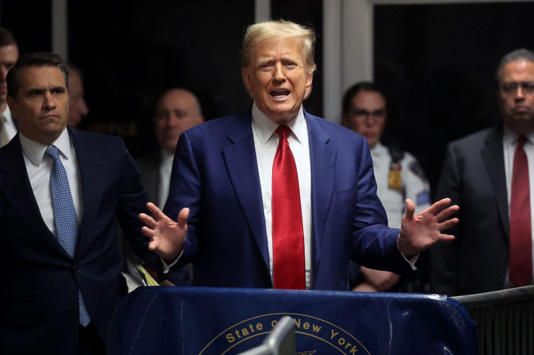Former President Donald Trump’s defense attorney in the Georgia election interference case has sparked intense legal debate by asserting that the charges against Trump are rooted in protected political speech under the First Amendment. The case revolves around allegations that Trump directed efforts to overturn the results of the 2020 election in Georgia, including the deployment of a “fake electors scheme” and pressuring state officials to alter the outcome. Trump’s defense hinges on the argument that his statements and actions regarding the election constitute core political speech, thereby warranting constitutional protection.
The crux of Trump’s defense lies in the interpretation of the First Amendment, which safeguards freedom of speech, particularly in the realm of political discourse. His legal team contends that statements made in the context of campaigning and elections are inherently protected, regardless of their veracity or potential consequences. By framing the allegations as an infringement on Trump’s right to engage in political speech, his attorneys seek to challenge the legal basis for the charges of election interference.
However, the prosecution counters that Trump’s actions extend beyond mere political rhetoric and constitute a deliberate effort to subvert democratic processes. The indictment alleges that Trump’s statements about election fraud were knowingly false and were used as part of a broader strategy to unlawfully overturn the election results. Prosecutors argue that Trump’s conduct crossed the line from protected speech into criminal activity, as evidenced by his alleged coordination with co-conspirators to undermine electoral integrity.
At the heart of the debate is the question of whether false statements, even if made in the context of political speech, should be shielded from legal accountability. Trump’s defense posits that even false statements can contribute to public debate and serve legitimate purposes within the political arena. Conversely, the prosecution contends that the dissemination of false information with the intent to deceive the public and undermine democratic institutions cannot be justified as protected speech.
The outcome of the case could have far-reaching implications for the boundaries of free speech in the context of electoral politics. A ruling in favor of Trump’s defense could bolster arguments for broadening the scope of protected speech, potentially providing greater latitude for political figures to make unsubstantiated claims without fear of legal repercussions. Conversely, a verdict favoring the prosecution could establish precedent for holding public figures accountable for disseminating false information and engaging in activities that threaten the integrity of the electoral process.
Beyond its legal ramifications, the case underscores broader concerns about the intersection of free speech and electoral integrity in the digital age. The proliferation of social media platforms has facilitated the rapid spread of misinformation and disinformation, posing significant challenges to the integrity of elections worldwide. As policymakers grapple with these challenges, the case serves as a litmus test for the legal frameworks governing political speech and the responsibilities of elected officials in safeguarding democratic norms.
The legal battle over Donald Trump’s alleged election interference in Georgia epitomizes the complex interplay between free speech rights and electoral integrity. As the case unfolds, it will force courts to confront fundamental questions about the scope of protected speech in the political arena and the limits of legal immunity for public figures. Ultimately, the resolution of the case will shape the contours of free speech jurisprudence and have profound implications for democracy in the digital age.
